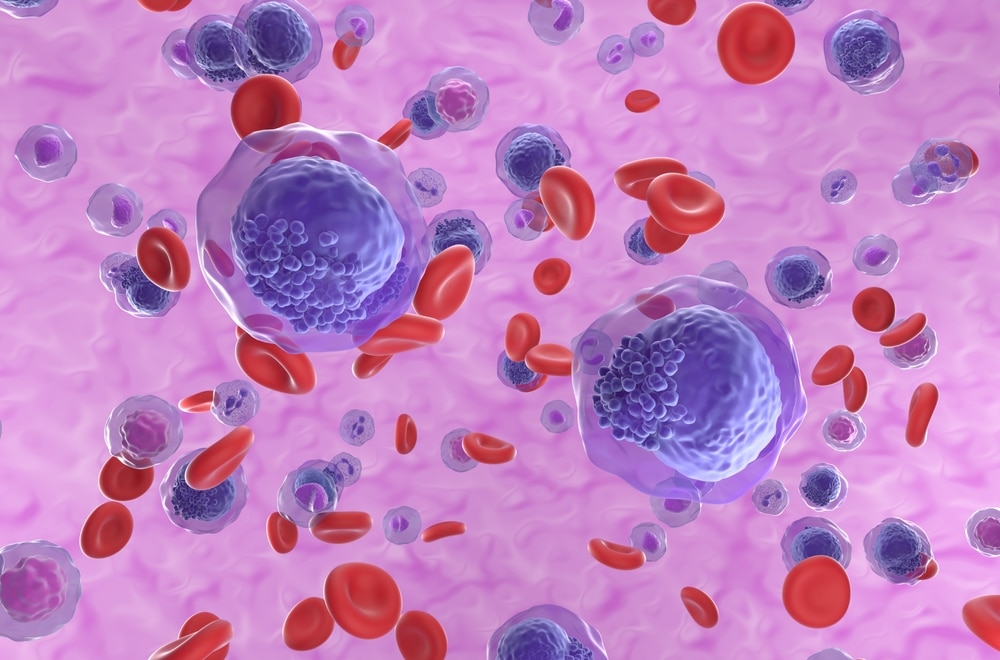Newsletter Signup - Under Article / In Page
"*" indicates required fields
After successfully completing in vitro and in vivo experiments, which support the notion that its lead drug candidate OM-301 breaks down cancer cells and increases survival rates, Oncolyze now has its sights set on advancing OM-301 into clinical trials.
Oncolyze has launched a Regulation A+ funding campaign to spread awareness of OM-301 among cancer patients, healthcare professionals, and the investment community. Reg A is a type of offering that allows anyone to invest in Oncolyze and receive shares in the company.
The investment opportunity is being hosted by SeedInvest and investments may be made in Oncolyze directly by visiting the SeedInvest website.
Cancer is the second-leading cause of death globally, killing 10 million yearly worldwide. The estimated total annual economic impact of cancer is more than $1 trillion globally. There are many types of cancer, but one of the deadliest is acute myelogenous leukemia (AML). Patients with this blood cancer have only a 1 in 4 chance of living for five years after diagnosis.
Current treatments include chemotherapies, targeted therapies, and bone marrow transplants. All these options carry significant side effects and are physically taxing to the patient, as well as being mostly ineffective given the high recurrence rate. As a result, there remains a huge unmet medical need for more efficacious treatments.
Oncolyze sees this challenge as a significant opportunity to make a positive impact on patients’ lives, with the potential to both increase their chance of survival and improve their quality of life.
About Oncolyze anti-cancer drug OM-301
Oncolyze has designed a novel anti-cancer drug (OM-301) that targets a particular cell surface protein. This protein, HDM2, is known to exist at high levels inside cancer cells and is thought to be an important driver of cancer growth and metastasis. More recently, though, it was discovered that HDM2 is also found on the cell surface of many types of cancer cells, but not normal cells.
OM-301 has two components. The first, a targeting segment, finds the HDM2 residing on the external surface of the cancer cell. Once OM-301 finds HDM2 and anchors, the second segment pokes holes in the surface and kills the cancer cell almost instantly by cell lysis and necrosis.
“Our mission is to bring a new drug to market which gives renewed hope to patients that there can be a cure for their terrible disease, or at the very least an improvement in their survival without a myriad of side effects. We are passionate in our quest to add a new type of anticancer therapy with a novel mechanism of action to the armamentarium in the war against cancer,” said Steven Evans, co-founder and CEO of Oncolyze.
“Because OM-301 acts on the outside of a cancer cell, we think that its efficacy may be independent of cancer genetics. What that means is that it could potentially work in cancer patients regardless of mutation type. This is important because AML can be caused by a variety of mutations in multiple proteins in leukemic blood cells. Some recently approved drugs only work for a subset of patients with a specific mutation, whereas we believe that OM-301 could help most if not all AML patients, especially those with hard-to-treat mutations.”
Earlier this year, Oncolyze announced the FDA had granted OM-301 an Orphan Drug designation for the treatment of AML. The FDA’s Office of Orphan Drug Products grants orphan status to drugs and biologics that demonstrate promise for the treatment of diseases or conditions affecting fewer than 200,000 people in the U.S.
Most AML patients relapse within one year of treatment, as standard therapy does not destroy cancer stem cells. As a result, AML has only a 25% five-year survival rate. In contrast, OM-301 has been shown to destroy leukemic cancer stem cells, and therefore has the potential to disrupt current medical treatment.
This designation provides Oncolyze with certain development incentives, including tax credits for qualified clinical testing, exemptions from certain FDA application fees, and potential market exclusivity, if approved.
Financing campaign
Alex Stojanovic, COO of Oncolyze, said: “AML is our immediate focus. We have preclinical evidence supporting the potential use of OM-301 in other types of cancers, including multiple myeloma (another blood cancer) and solid tumors such as colon, ovarian, pancreatic and sarcoma cancer. We know that our target exists on the cell surface of over 25 types of cancer. If approved by the FDA, as far as we are aware of, OM-301 would be the only therapeutic that treats cancer by targeting this cell-surface HDM2 protein.”
The current financing campaign is expected to provide Oncolyze with the necessary funds to advance OM-301 through the final preclinical testing phase and into a phase 1/2a clinical trial in AML patients.
The company plans to start that clinical trial approximately one year post-financing. The company has received more than $825,000 in investments in the first two weeks.
Following proof of concept in AML patients, the company expects to pursue development for patients with other hematologic and solid cancers.
Note: Oncolyze is offering securities through the use of an Offering Statement that has been qualified by the Securities and Exchange Commission under Tier II of Regulation A. A copy of the Final Offering Circular that forms a part of the Offering Statement may be obtained from Oncolyze at https://www.seedinvest.com/oncolyze.
Oncology R&D trends and breakthrough innovations







